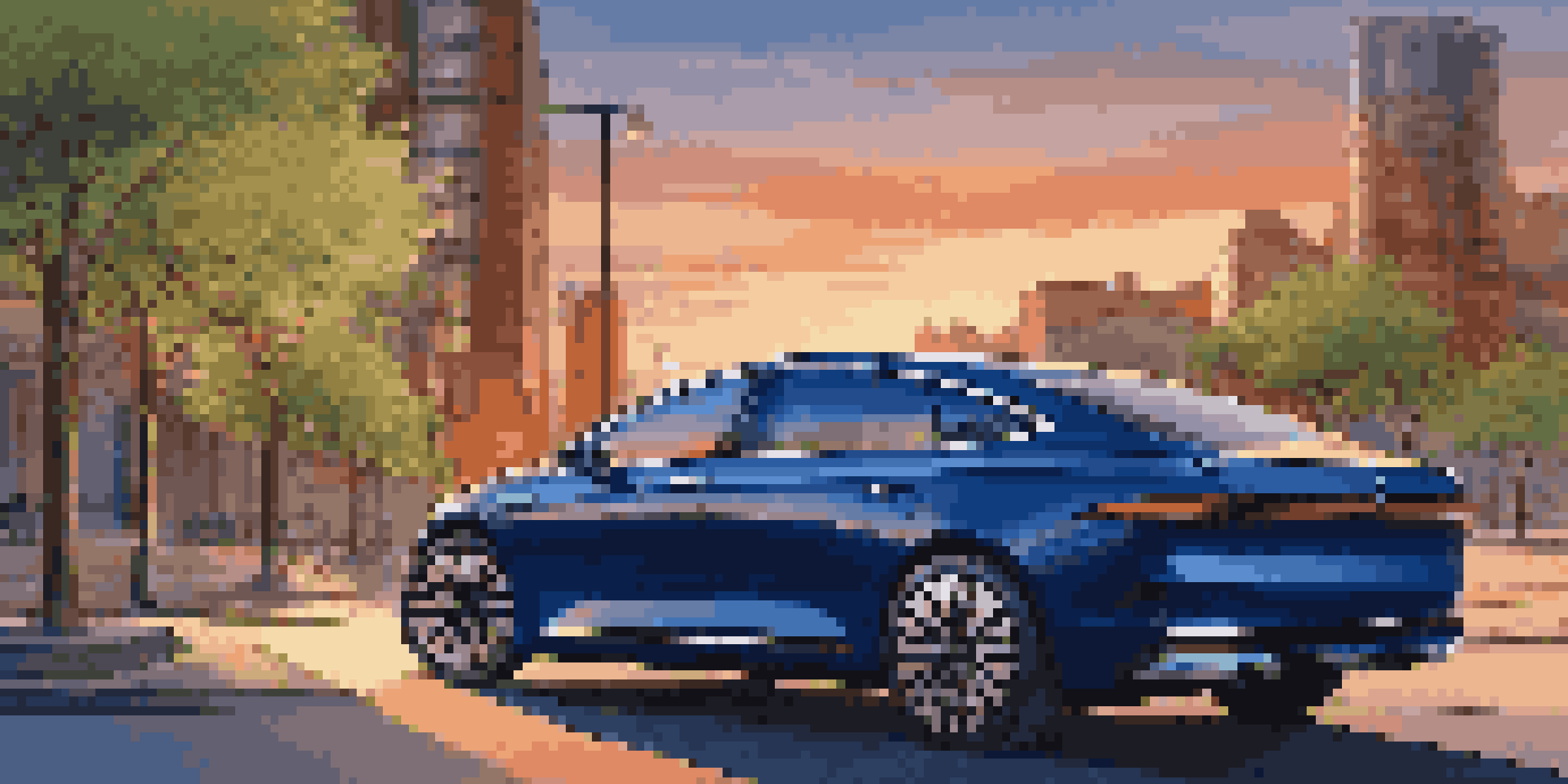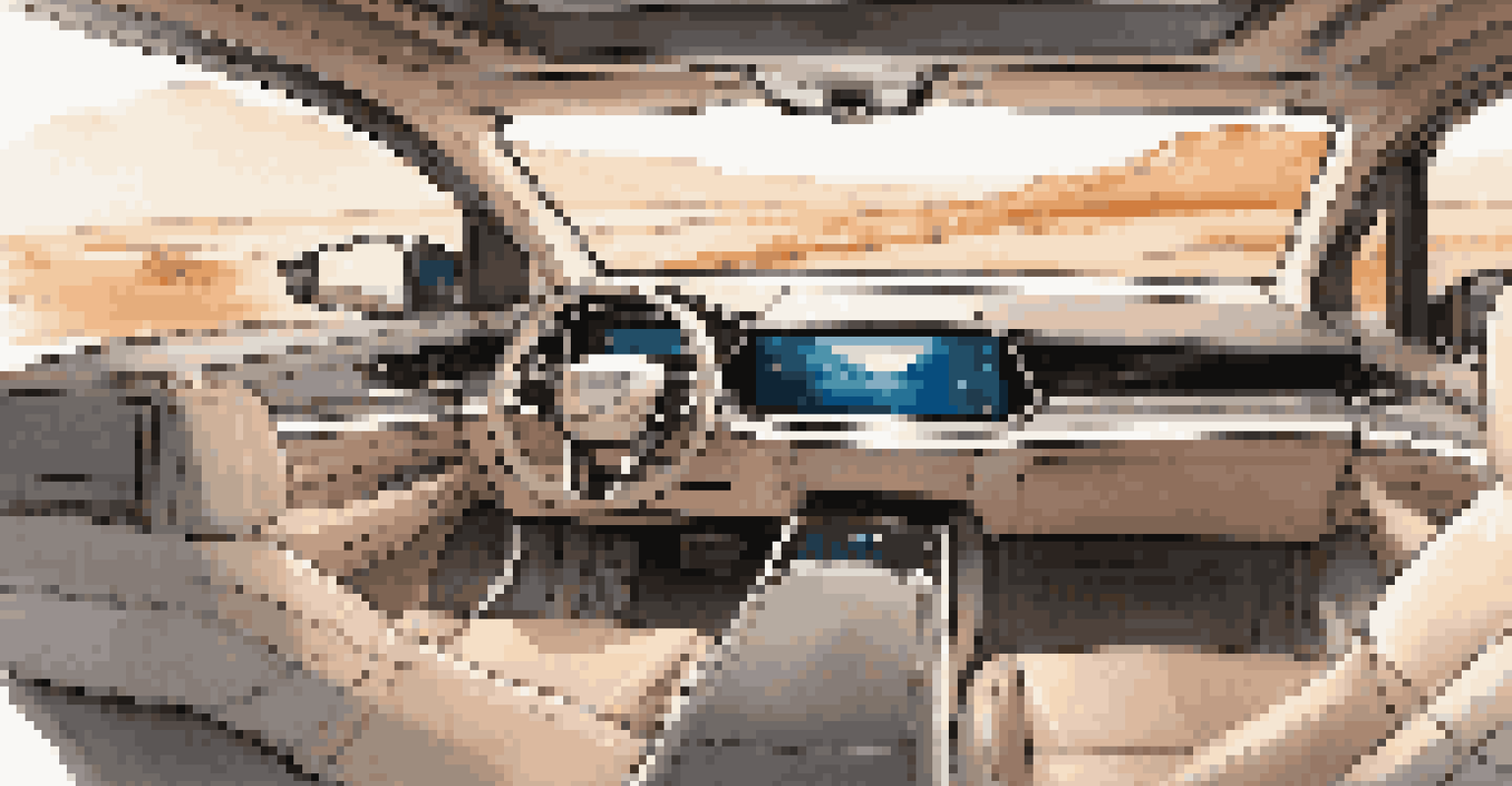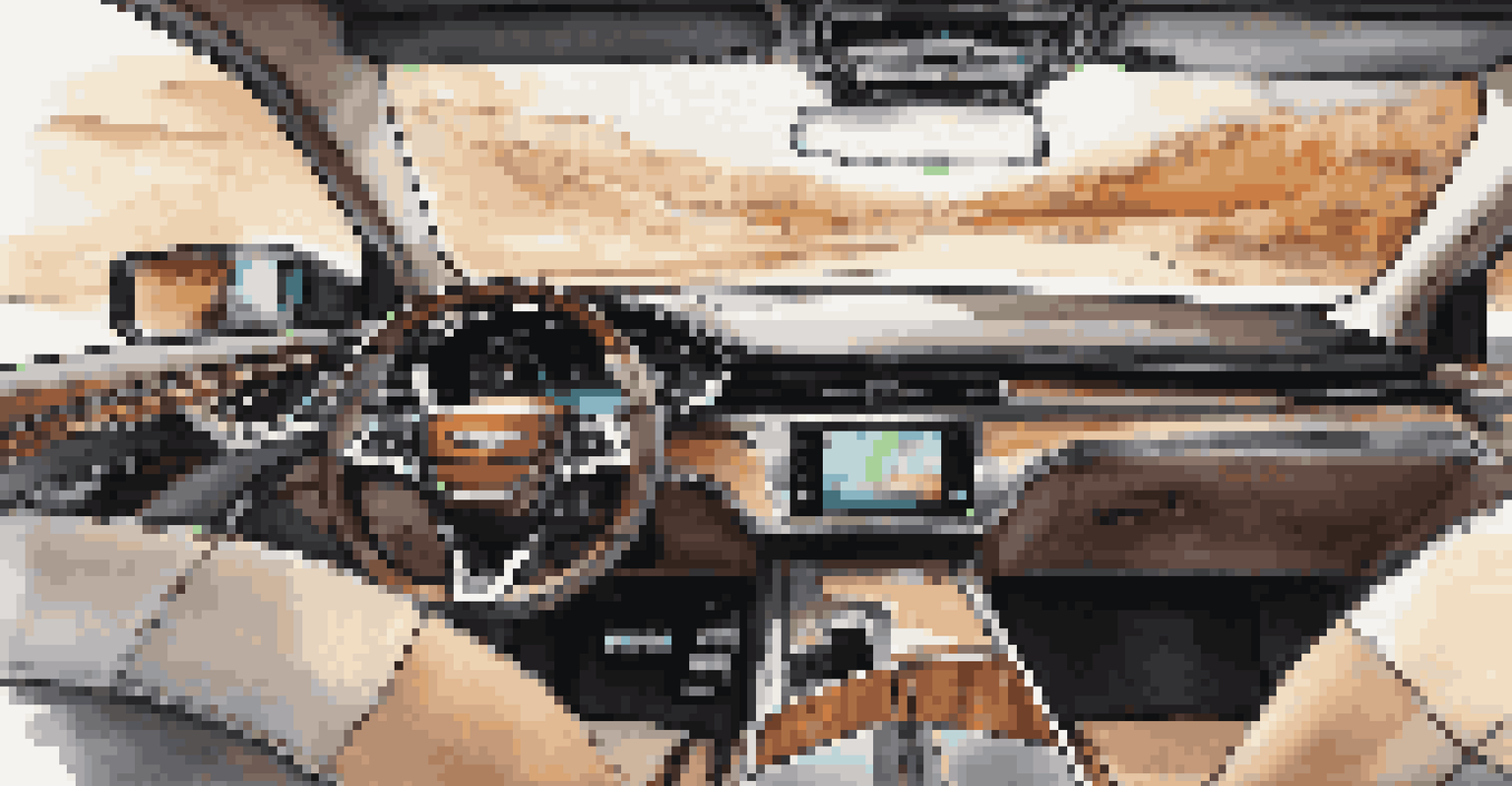The Future of Luxury Cars: A Prediction for 2030

The Rise of Electric Luxury Vehicles by 2030
As we approach 2030, electric vehicles (EVs) are set to dominate the luxury car market. High-end brands are already investing heavily in electric technology, aiming for sustainability without compromising performance. Imagine gliding silently down the road in a sleek electric sedan that offers both power and eco-friendliness.
The future is electric, and it's changing the way we think about luxury and performance.
Luxury EVs will not just focus on getting from point A to B; they will redefine the driving experience. Expect features like advanced battery technology for longer ranges and rapid charging capabilities that make long trips feasible. Brands will prioritize not only luxury but also efficiency, marrying style with responsibility.
Moreover, as environmental awareness grows, consumers will gravitate towards brands that showcase their commitment to sustainability. By 2030, owning a luxury electric car will not only be about prestige but also about making a statement in favor of a greener planet.
Autonomous Driving: The Next Level of Luxury
Picture this: You're in the back seat of your luxury car, enjoying a fine glass of wine while it drives you to your destination. By 2030, autonomous driving technology will likely be a standard feature in high-end vehicles, transforming the way we perceive travel. Luxury brands will harness AI to create a seamless and enjoyable travel experience.

The focus will be on passenger comfort and convenience as self-driving cars take over the wheel. Luxury vehicles will feature customizable interiors that adapt to your preferences, whether you wish to relax, work, or socialize during your journey. This shift will redefine luxury, making time spent in the car feel like an extension of your living space.
Luxury EVs Redefine Driving Experience
By 2030, electric luxury vehicles will combine sustainability with advanced features, transforming the way we travel.
However, while the allure of autonomous driving is enticing, safety will remain paramount. Brands will invest in cutting-edge technology to ensure that these vehicles operate securely and efficiently, giving drivers peace of mind as they embrace the future.
Personalization: Tailoring Luxury Cars to Your Taste
In 2030, personalization will reign supreme in the luxury car market. Imagine stepping into a vehicle that has been customized to suit your unique style and preferences, from the color of the interior to the smart features that reflect your lifestyle. This level of customization will be a key selling point for luxury brands.
The best way to predict the future is to create it.
With advancements in technology, customers will have the opportunity to design their own vehicles through interactive platforms. From selecting materials to choosing entertainment systems, the options will be endless. This hands-on approach will foster a deeper connection between the owner and their vehicle, making it a true reflection of their identity.
As personalization becomes more mainstream, luxury car manufacturers will also focus on limited-edition models. These exclusive offerings will cater to discerning buyers looking for something unique, further enhancing the status and desirability of their luxury cars.
Sustainability: A Core Value for Luxury Brands
By 2030, sustainability will no longer be an afterthought but a core value for luxury car manufacturers. As consumers become more environmentally conscious, brands will respond by integrating sustainable practices throughout their production processes. From sourcing materials to manufacturing and recycling, every aspect of car production will prioritize eco-friendliness.
Luxury brands will also focus on using renewable resources in their vehicles. Expect to see features made from recycled materials, such as upholstery crafted from ocean plastics and interiors that reflect a commitment to sustainability. This alignment with eco-conscious values will resonate with customers, enhancing brand loyalty.
Personalization Takes Center Stage
The future of luxury cars will prioritize customization, allowing owners to tailor their vehicles to their unique preferences.
In addition, luxury car brands will actively promote their initiatives in combating climate change, turning their sustainability efforts into a key marketing strategy. By emphasizing their commitment to a greener future, these brands will capture the hearts of consumers who value both luxury and responsibility.
The Integration of Smart Technology in Luxury Cars
As we look toward 2030, the integration of smart technology will revolutionize luxury cars. Imagine a vehicle that not only understands your preferences but also anticipates your needs, enhancing your driving experience. From advanced infotainment systems to voice-activated controls, technology will elevate the luxury car experience like never before.
Luxury vehicles will also feature enhanced connectivity, allowing drivers to integrate their digital lives seamlessly. Smart devices will communicate with the car, enabling features like remote diagnostics and vehicle health checks. This level of integration will ensure that drivers are always informed and in control.
Furthermore, as cars become more connected, the potential for personalized experiences will expand. Think of a car that adjusts its climate control based on your comfort preferences or one that recommends the best routes based on traffic and your schedule. This blend of technology and luxury will create a driving experience tailored just for you.
The Future of Luxury Car Ownership Models
By 2030, the traditional model of car ownership could see a significant shift, with luxury brands exploring alternative ownership models. Car-sharing and subscription services will emerge as appealing options for consumers who desire flexibility and convenience. Imagine enjoying the luxury experience without the long-term commitment of ownership.
These new models will cater to a younger demographic that values experiences over possessions. Luxury brands will offer tiered subscription services that allow customers to switch between models based on their needs, whether it’s a sleek convertible for a weekend getaway or a spacious SUV for a family trip.
Sustainability Becomes Essential
Luxury brands will integrate eco-friendly practices into their production processes, making sustainability a core value by 2030.
As these models gain popularity, brands will also focus on creating seamless user experiences. From app-based reservations to on-demand delivery, the future of luxury car ownership will prioritize convenience and accessibility, ensuring that luxury is always within reach.
The Impact of Global Trends on Luxury Cars
Global trends will undoubtedly influence the future of luxury cars in 2030. As urbanization continues to rise, luxury car manufacturers will need to adapt to new city environments and regulations. This may lead to the development of compact, more efficient models designed for urban living without sacrificing luxury.
Furthermore, the growing demand for luxury cars in emerging markets will shape product offerings. Brands will tailor their designs and features to meet cultural preferences and needs, expanding their reach and appeal. This adaptation will ensure that luxury remains relevant in diverse markets around the world.

Lastly, the ongoing evolution of consumer behavior will drive luxury brands to innovate constantly. As customers' expectations evolve, manufacturers will need to stay ahead of the curve to meet the desire for exclusivity, performance, and sustainability, ensuring they remain leaders in the luxury automotive sector.